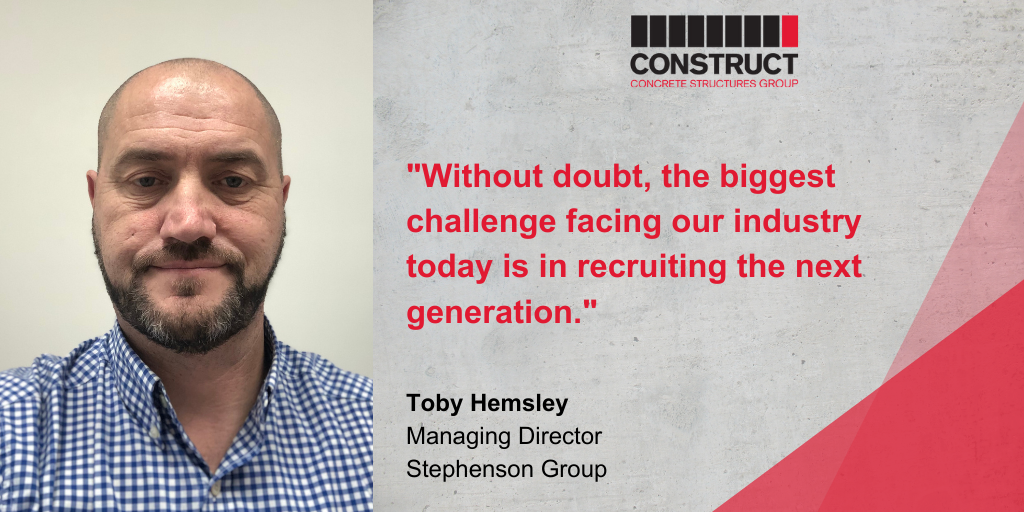
Tell us a little about your company’s story.
We are one of the very first true RC frame companies to be established in the UK, forming originally as a shuttering company in 1962. Martin Stephenson (the son of the founder Richard, or ‘Dick’) is still heading the ship as the current Chairman and has led the company through a series of diversifications, including our own developments, whilst our core focus remains in RC frames.
Martin’s son Henry has gained his degree and is working his way through the management ranks out on the field currently, so long may it continue.
What do you see as the main challenges facing the concrete structures industry today?
Let’s face it, RC frames are not easy and not particularly attractive. They involve everything that is hard going. We are working at height, we are working with both silica and wood dust, we work long hours in all weathers with an ever-changing work force.
One of the most recent challenges to in-situ RC frames is the development of numerous off-site construction elements and hybridisation system options in the industry. We all know the advantages of precast and associated systems, but we have also regularly seen some serious players fall to the sword in that world.
Without doubt, the biggest challenge facing our industry today is in recruiting the next generation; not just the management team but the folks out on-site, building. We are competing against far more comfortable, desirable and better remunerated industries and have seen the competitive advantage of higher salaries erode over time.
It is also in making the supervisor’s role compelling and rewarding to attract new talent and encourage individual development and advancement. It can’t just be about finding the person to blame if there is an issue.
How can the industry best tackle those challenges?
The industry as a whole, I believe, is inching closer to selling the construction dream to the students of today through universities and colleges, and through the professional degree routes, main contractor management apprenticeships and initiatives such as Go Construct.
But we still need to do more and we also need to focus on early engagement with career professionals in the secondary schools at options times, to promote the tradespeople and the lever pullers, and not just the future surveyors and architects.
In order to meet future demand, we need to be more innovative and proactive and not just rely on youngsters following in their fathers’ footsteps.
Where do you believe the greatest opportunities lie for the industry of today and tomorrow?
Purpose built accommodation is certainly taking off again in all sectors – for sale, rent and even hotels – and we are busy in these sectors.
If we can do more to encourage the standardisation of module / room / apartment layouts, it will allow hybrid and modular build technologies to be more widely and efficiently exploited and integrated, as is the case on the continent to the benefit of all stakeholders.
It is also fair to say that we have been a champion over the years of early engagement of the specialist contractors in the design process, which we believe brings significant benefits, reduces risk and improves relationships for clients, contractors and the specialist.
You can download the PDF interview here.